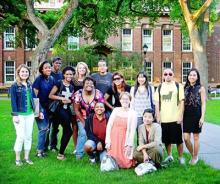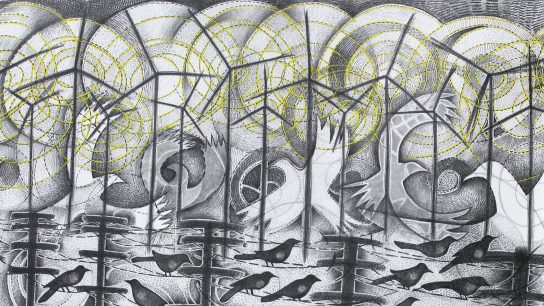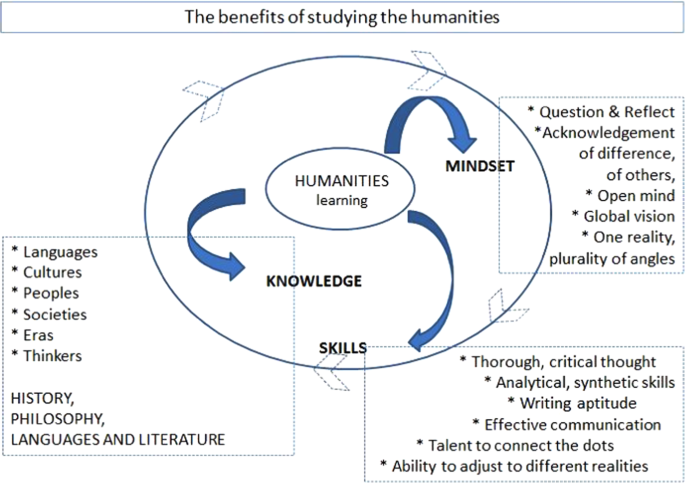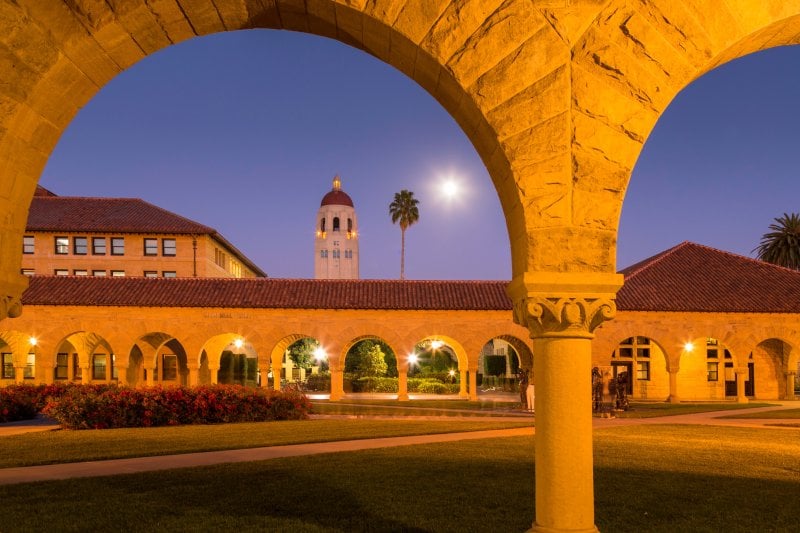- Privacy Policy
Buy Me a Coffee

Home » Humanities Research – Types, Methods and Examples

Humanities Research – Types, Methods and Examples
Table of Contents

Humanities Research
Definition:
Humanities research is a systematic and critical investigation of human culture, values, beliefs, and practices, including the study of literature, philosophy, history, art, languages, religion, and other aspects of human experience.
Types of Humanities Research
Types of Humanities Research are as follows:
Historical Research
This type of research involves studying the past to understand how societies and cultures have evolved over time. Historical research may involve examining primary sources such as documents, artifacts, and other cultural products, as well as secondary sources such as scholarly articles and books.
Cultural Studies
This type of research involves examining the cultural expressions and practices of a particular society or community. Cultural studies may involve analyzing literature, art, music, film, and other forms of cultural production to understand their social and cultural significance.
Linguistics Research
This type of research involves studying language and its role in shaping cultural and social practices. Linguistics research may involve analyzing the structure and use of language, as well as its historical development and cultural variations.
Anthropological Research
This type of research involves studying human cultures and societies from a comparative and cross-cultural perspective. Anthropological research may involve ethnographic fieldwork, participant observation, interviews, and other qualitative research methods.
Philosophy Research
This type of research involves examining fundamental questions about the nature of reality, knowledge, morality, and other philosophical concepts. Philosophy research may involve analyzing philosophical texts, conducting thought experiments, and engaging in philosophical discourse.
Art History Research
This type of research involves studying the history and significance of art and visual culture. Art history research may involve analyzing the formal and aesthetic qualities of art, as well as its historical context and cultural significance.
Literary Studies Research
This type of research involves analyzing literature and other forms of written expression. Literary studies research may involve examining the formal and structural qualities of literature, as well as its historical and cultural context.
Digital Humanities Research
This type of research involves using digital technologies to study and analyze cultural artifacts and practices. Digital humanities research may involve analyzing large datasets, creating digital archives, and using computational methods to study cultural phenomena.
Data Collection Methods
Data Collection Methods in Humanities Research are as follows:
- Interviews : This method involves conducting face-to-face, phone or virtual interviews with individuals who are knowledgeable about the research topic. Interviews may be structured, semi-structured, or unstructured, depending on the research questions and objectives. Interviews are often used in qualitative research to gain in-depth insights and perspectives.
- Surveys : This method involves distributing questionnaires or surveys to a sample of individuals or groups. Surveys may be conducted in person, through the mail, or online. Surveys are often used in quantitative research to collect data on attitudes, behaviors, and other characteristics of a population.
- Observations : This method involves observing and recording behavior or events in a natural or controlled setting. Observations may be structured or unstructured, and may involve the use of audio or video recording equipment. Observations are often used in qualitative research to collect data on social practices and behaviors.
- Archival Research: This method involves collecting data from historical documents, artifacts, and other cultural products. Archival research may involve accessing physical archives or online databases. Archival research is often used in historical and cultural studies to study the past.
- Case Studies : This method involves examining a single case or a small number of cases in depth. Case studies may involve collecting data through interviews, observations, and archival research. Case studies are often used in cultural studies, anthropology, and sociology to understand specific social or cultural phenomena.
- Focus Groups : This method involves bringing together a small group of individuals to discuss a particular topic or issue. Focus groups may be conducted in person or online, and are often used in qualitative research to gain insights into social and cultural practices and attitudes.
- Participatory Action Research : This method involves engaging with individuals or communities in the research process, with the goal of promoting social change or addressing a specific social problem. Participatory action research may involve conducting focus groups, interviews, or surveys, as well as involving participants in data analysis and interpretation.
Data Analysis Methods
Some common data analysis methods used in humanities research:
- Content Analysis : This method involves analyzing the content of texts or cultural artifacts to identify patterns, themes, and meanings. Content analysis is often used in literary studies, media studies, and cultural studies to analyze the meanings and representations conveyed in cultural products.
- Discourse Analysis: This method involves analyzing the use of language and discourse to understand social and cultural practices and identities. Discourse analysis may involve analyzing the structure, meaning, and power dynamics of language and discourse in different social contexts.
- Narrative Analysis: This method involves analyzing the structure, content, and meaning of narratives in different cultural contexts. Narrative analysis may involve analyzing the themes, symbols, and narrative devices used in literary texts or other cultural products.
- Ethnographic Analysis : This method involves analyzing ethnographic data collected through participant observation, interviews, and other qualitative methods. Ethnographic analysis may involve identifying patterns and themes in the data, as well as interpreting the meaning and significance of social and cultural practices.
- Statistical Analysis: This method involves using statistical methods to analyze quantitative data collected through surveys or other quantitative methods. Statistical analysis may involve using descriptive statistics to describe the characteristics of the data, or inferential statistics to test hypotheses and make inferences about a population.
- Network Analysis: This method involves analyzing the structure and dynamics of social networks to understand social and cultural practices and relationships. Network analysis may involve analyzing patterns of social interaction, communication, and influence.
- Visual Analysis : This method involves analyzing visual data, such as images, photographs, and art, to understand their cultural and social significance. Visual analysis may involve analyzing the formal and aesthetic qualities of visual products, as well as their historical and cultural context.
Examples of Humanities Research
Some Examples of Humanities Research are as follows:
- Literary research on diversity and representation: Scholars of literature are exploring the representation of different groups in literature and how those representations have changed over time. They are also studying how literature can promote empathy and understanding across different cultures and communities.
- Philosophical research on ethics and technology: Philosophers are examining the ethical implications of emerging technologies, such as artificial intelligence and biotechnology. They are asking questions about what it means to be human in a world where technology is becoming increasingly advanced.
- Anthropological research on cultural identity: Anthropologists are studying the ways in which culture shapes individual and collective identities. They are exploring how cultural practices and beliefs can shape social and political systems, as well as how individuals and communities resist or adapt to dominant cultural norms.
- Linguistic research on language and communication: Linguists are studying the ways in which language use and communication can impact social and political power dynamics. They are exploring how language can reinforce or challenge social hierarchies and how language use can reflect cultural values and norms.
How to Conduct Humanities Research
Conducting humanities research involves a number of steps, including:
- Define your research question or topic : Identify a question or topic that you want to explore in-depth. This can be a broad or narrow topic, depending on the scope of your research project.
- Conduct a literature review: Before beginning your research, read extensively on your topic. This will help you understand the existing scholarship and identify gaps in the literature that your research can address.
- Develop a research methodology: Determine the methods you will use to collect and analyze data, such as interviews, surveys, archival research, or textual analysis. Your methodology should be appropriate to your research question and topic.
- Collect data: Collect data using the methods you have chosen. This may involve conducting interviews, surveys, or archival research, or analyzing primary or secondary sources.
- Analyze data: Once you have collected data, analyze it using appropriate methods. This may involve coding, categorizing, or comparing data, or interpreting texts or other sources.
- Draw conclusions: Based on your analysis, draw conclusions about your research question or topic. These conclusions should be supported by your data and should contribute to existing scholarship.
- Communicate your findings : Communicate your findings through writing, presentations, or other forms of dissemination. Your work should be clearly written and accessible to a broad audience.
Applications of Humanities Research
Humanities research has many practical applications in various fields, including:
- Policy-making: Humanities research can inform policy-making by providing insights into social, cultural, and historical contexts. It can help policymakers understand the impact of policies on communities and identify potential unintended consequences.
- Education: Humanities research can inform curriculum development and pedagogy. It can provide insights into how to teach critical thinking, cross-cultural understanding, and communication skills.
- Cultural heritage preservation: Humanities research can help to preserve cultural heritage by documenting and analyzing cultural practices, traditions, and artifacts. It can also help to promote cultural tourism and support local economies.
- Business and industry: Humanities research can provide insights into consumer behavior, cultural preferences, and historical trends that can inform marketing, branding, and product design.
- Healthcare : Humanities research can contribute to the development of patient-centered healthcare by exploring the impact of social and cultural factors on health and illness. It can also help to promote cross-cultural understanding and empathy in healthcare settings.
- Social justice: Humanities research can contribute to social justice by providing insights into the experiences of marginalized communities, documenting historical injustices, and promoting cross-cultural understanding.
Purpose of Humanities Research
The purpose of humanities research is to deepen our understanding of human experience, culture, and history. Humanities research aims to explore the human condition and to provide insights into the diversity of human perspectives, values, and beliefs.
Humanities research can contribute to knowledge in various fields, including history, literature, philosophy, anthropology, and more. It can help us to understand how societies and cultures have evolved over time, how they have been shaped by various factors, and how they continue to change.
Humanities research also aims to promote critical thinking and creativity. It encourages us to question assumptions, to challenge dominant narratives, and to seek out new perspectives. Humanities research can help us to develop empathy and understanding for different cultures and communities, and to appreciate the richness and complexity of human experience.
Overall, the purpose of humanities research is to contribute to a deeper understanding of ourselves, our communities, and our world. It helps us to grapple with fundamental questions about the human experience and to develop the skills and insights needed to address the challenges of the future.
When to use Humanities Research
Humanities research can be used in various contexts where a deeper understanding of human experience, culture, and history is required. Here are some examples of when humanities research may be appropriate:
- Exploring social and cultural phenomena: Humanities research can be used to explore social and cultural phenomena such as art, literature, religion, and politics. It can help to understand how these phenomena have evolved over time and how they relate to broader social, cultural, and historical contexts.
- Understanding historical events: Humanities research can be used to understand historical events such as wars, revolutions, and social movements. It can provide insights into the motivations, experiences, and perspectives of the people involved, and help to contextualize these events within broader historical trends.
- Promoting cultural understanding : Humanities research can be used to promote cross-cultural understanding and to challenge stereotypes and biases. It can provide insights into the diversity of human experiences, values, and beliefs, and help to build empathy and mutual respect across different cultures and communities.
- Informing policy-making: Humanities research can be used to inform policy-making by providing insights into social, cultural, and historical contexts. It can help policymakers understand the impact of policies on communities and identify potential unintended consequences.
- Promoting innovation and creativity : Humanities research can be used to promote innovation and creativity in various fields. It can help to generate new ideas, perspectives, and approaches to complex problems, and to challenge conventional thinking and assumptions.
Characteristics of Humanities Research
Some of the key characteristics of humanities research:
- Focus on human experience: Humanities research focuses on the study of human experience, culture, and history. It aims to understand the human condition, explore human values and beliefs, and analyze the ways in which societies and cultures have evolved over time.
- Interpretive approach: Humanities research takes an interpretive approach to data analysis. It seeks to understand the meaning behind texts, artifacts, and cultural practices, and to explore the multiple perspectives and contexts that shape human experience.
- Contextualization : Humanities research emphasizes the importance of contextualization. It seeks to understand how social, cultural, and historical factors shape human experience, and to place individual phenomena within broader cultural and historical contexts.
- Subjectivity : Humanities research recognizes the subjective nature of human experience. It acknowledges that human values, beliefs, and experiences are shaped by individual perspectives, and that these perspectives can vary across cultures, communities, and time periods.
- Narrative analysis : Humanities research often uses narrative analysis to explore the stories, myths, and cultural narratives that shape human experience. It seeks to understand how these narratives are constructed, how they evolve over time, and how they influence individual and collective identity.
- Multi-disciplinary: Humanities research is often interdisciplinary, drawing on a range of disciplines such as history, literature, philosophy, anthropology, and more. It seeks to bring together different perspectives and approaches to understand complex human phenomena.
Advantages of Humanities Research
Some of the key advantages of humanities research:
- Promotes critical thinking: Humanities research encourages critical thinking by challenging assumptions and exploring different perspectives. It requires researchers to analyze and interpret complex texts, artifacts, and cultural practices, and to make connections between different phenomena.
- Enhances cultural understanding : Humanities research promotes cross-cultural understanding by exploring the diversity of human experiences, values, and beliefs. It helps to challenge stereotypes and biases and to build empathy and mutual respect across different cultures and communities.
- Builds historical awareness: Humanities research helps us to understand the historical context of current events and social issues. It provides insights into how societies and cultures have evolved over time and how they have been shaped by various factors, and helps us to contextualize current social, political, and cultural trends.
- Contributes to public discourse: Humanities research contributes to public discourse by providing insights into complex social, cultural, and historical phenomena. It helps to inform public policy and public debate by providing evidence-based analysis and insights into social issues and problems.
- Promotes creativity and innovation: Humanities research promotes creativity and innovation by challenging conventional thinking and assumptions. It encourages researchers to generate new ideas and perspectives and to explore alternative ways of understanding and addressing complex problems.
- Builds communication skills: Humanities research requires strong communication skills, including the ability to analyze and interpret complex texts, artifacts, and cultural practices, and to communicate findings and insights in a clear and compelling way.
Limitations of Humanities Research
Some of the key limitations of humanities research:
- Subjectivity: Humanities research relies heavily on interpretation and analysis, which are inherently subjective. Researchers bring their own perspectives, biases, and values to the analysis, which can affect the conclusions they draw.
- Lack of generalizability : Humanities research often focuses on specific texts, artifacts, or cultural practices, which can limit the generalizability of findings to other contexts. It is difficult to make broad generalizations based on limited samples, which can be a challenge when trying to draw broader conclusions.
- Limited quantitative data : Humanities research often relies on qualitative data, such as texts, images, and cultural practices, which can be difficult to quantify. This can make it difficult to conduct statistical analyses or to draw quantitative conclusions.
- Limited replicability: Humanities research often involves in-depth analysis of specific texts, artifacts, or cultural practices, which can make it difficult to replicate studies. This can make it challenging to test the validity of findings or to compare results across studies.
- Limited funding: Humanities research may not always receive the same level of funding as other types of research. This can make it challenging for researchers to conduct large-scale studies or to have access to the same resources as other researchers in different fields.
- Limited impact : Humanities research may not always have the same level of impact as research in other fields, particularly in terms of policy and practical applications. This can make it challenging for researchers to demonstrate the relevance and impact of their work.
About the author
Muhammad Hassan
Researcher, Academic Writer, Web developer
You may also like

Scientific Research – Types, Purpose and Guide

Historical Research – Types, Methods and Examples

Documentary Research – Types, Methods and...

Original Research – Definition, Examples, Guide

Artistic Research – Methods, Types and Examples
- Make a Gift
- Directories
Search form
You are here.
- Programs & Courses
- Undergraduate
- Undergraduate Research
What is Humanities Research?

Research in the humanities is frequently misunderstood. When we think of research, what immediately comes to mind for many of us is a laboratory setting, with white-coated scientists hunched over microscopes. Because research in the humanities is often a rather solitary activity, it can be difficult for newcomers to gain a sense of what research looks like within the scope of English Studies. (For examples, see Student Research Profiles .)
A common misconception about research is reinforced when we view it solely in terms of the discovery of things previously unknown (such as a new species or an archaelogical artifact) rather than as a process that includes the reinterpretation or rediscovery of known artifacts (such as texts and other cultural products) from a critical or creative perspective to generate innovative art or new analyses. Fundamental to the concept of research is precisely this creation of something new. In the humanities, this might consist of literary authorship, which creates new knowledge in the form of art, or scholarly research, which adds new knowledge by examining texts and other cultural artifacts in the pursuit of particular lines of scholarly inquiry.
Research is often narrowly construed as an activity that will eventually result in a tangible product aimed at solving a world or social problem. Instead, research has many aims and outcomes and is a discipline-specific process, based upon the methods, conventions, and critical frameworks inherent in particular academic areas. In the humanities, the products of research are predominantly intellectual and intangible, with the results contributing to an academic discipline and also informing other disciplines, a process which often effects individual or social change over time.
The University of Washington Undergraduate Research Program provides this basic definition of research:
"Very generally speaking, most research is characterized by the evidence-based exploration of a question or hypothesis that is important to those in the discipline in which the work is being done. Students, then, must know something about the research methodology of a discipline (what constitutes "evidence" and how do you obtain it) and how to decide if a question or line of inquiry that is interesting to that student is also important to the discipline, to be able to embark on a research project."
While individual research remains the most prevalent form in the humanities, collaborative and cross-disciplinary research does occur. One example is the "Modern Girl Around the World" project, in which a group of six primary UW researchers from various humanities and social sciences disciplines explored the international emergence of the figure of the Modern Girl in the early 20th century. Examples of other research clusters are "The Race/Knowledge Project: Anti-Racist Praxis in the Global University," "The Asian American Studies Research Cluster," " The Queer + Public + Performance Project ," " The Moving Images Research Group ," to name a few.
English Studies comprises, or contains elements of, many subdisciplines. A few examples of areas in which our faculty and students engage are Textual Studies , Digital Humanities , American Studies , Language and Rhetoric , Cultural Studies , Critical Theory , and Medieval Studies . Each UW English professor engages in research in one or more specialty areas. You can read about English faculty specializations, research, and publications in the English Department Profiles to gain a sense of the breadth of current work being performed by Department researchers.
Undergraduates embarking on an independent research project work under the mentorship of one or more faculty members. Quite often this occurs when an advanced student completes an upper-division class and becomes fascinated by a particular, more specific line of inquiry, leading to additional investigation in an area beyond the classroom. This also occurs when students complete the English Honors Program , which culminates in a guided research-based thesis. In order for faculty members to agree to mentor a student, the project proposal must introduce specific approaches and lines of inquiry, and must be deemed sufficiently well defined and original enough to contribute to the discipline. If a faculty member in English has agreed to support your project proposal and serve as your mentor, credit is available through ENGL 499.
Beyond English Department resources, another source of information is the UW Undergraduate Research Program , which sponsors the annual Undergraduate Research Symposium . They also offer a one-credit course called Research Exposed (GEN ST 391) , in which a variety of faculty speakers discuss their research and provide information about research methods. Another great campus resource is the Simpson Center for the Humanities which supports interdisciplinary study. A number of our students have also been awarded Mary Gates Research Scholarships .
Each year, undergraduate English majors participate in the UW's Annual Undergraduate Research Symposium as well as other symposia around the nation. Here are some research abstracts from the symposia proceedings archive by recent English-major participants.
UW English Majors Recently Presenting at the UW's Annual Undergraduate Research Symposium
For additional examples, see Student Profiles and Past Honors Students' Thesis Projects .
- Newsletter
What is Humanities Research?
A column by lucille lorenz (comp lit '26) about an undergraduate's exploration of humanities research through interviews and writing., italian studies phd student lauren bartone discusses research, residencies, and archival work, mairi mclauglin: "translation really belongs everywhere...", graduate student sylvie thode on “why do we do what we do in criticism, and how do we do it”, atreyee gupta: "art history, as a discipline, has constantly exploded and expanded what art is, what it can do, and what counts as art.", phd student noor asif: "public-facing writing is important because it democratizes literature and the study of literature", damon young: "the self is everywhere, but also threatened with obsolescence by the rise of ai", interview: mario telò on bringing “antiquity” into steady dialogue with the "now", from decal creator to mellon mays undergraduate fellowship — an interview with undergraduate student fabiola vazquez espinoza, an interview with professor eric falci, chair, department of english, “how did i get into classics” an interview with lauren nguyen, gsi, "my solitude is gladdened by this elegant hope" an introduction from the editor of "what is humanities research".

Humanities Research projects from Undergraduates, Graduates, and Faculty
Berkeley voices: medieval song holds clues to lost dialects.
In his research, UC Berkeley Ph.D. candidate Saagar Asnani looks at music manuscripts from between the 12th and 14th ... Read more about Berkeley Voices: Medieval song holds clues to lost dialects
The Next Generation of Internet Sustainability—and the URAP Students Making it Happen
While many people may think satellites are responsible for telecommunications as we know it, the global subsea cable network... Read more about The Next Generation of Internet Sustainability—and the URAP Students Making it Happen
More exciting than a term paper: Student exhibition highlights art, science and new pathways
It’s almost unheard of for a first-year college student to curate an exhibition at a prestigious art institution. Yet, on a recent December afternoon, three new undergraduates at UC Berkeley — Raena Chan, Emma Cusimano and Caitlyn Liao — guided visitors around... Read more about More exciting than a term paper: Student exhibition highlights art, science and new pathways
Alex Saum Pascual weighs in on the transformative potential of AI in academia
In Berkeley Talks episode 186, a panel of UC Berkeley scholars from the College of Letters and Science discusses the transformative potential of artificial intelligence in academia — and the questions and challenges it requires universities and other social institutions to confront.
"... Read more about Alex Saum Pascual weighs in on the transformative potential of AI in academia
Collaborative Initiative Brings Psychedelics Research to the Humanities at Berkeley
Berkeley, CA -- On November 15, the University of California, Berkeley and Harvard University announced a new, collaborative initiative that will expand psychedelic research across the arts, humanities and social sciences. Called “ ... Read more about Collaborative Initiative Brings Psychedelics Research to the Humanities at Berkeley
Professor Andrew F. Jones: "If you take literature seriously enough, you will find that it's a material force that changes the world"
This is an interview with Andrew F. Jones, Professor in the Department of East Asian Languages and Cultures, who also holds the Louis B. Agassiz Chair in Chinese, he is also the Head Graduate Advisor. Bold questions posed by Ann Chen.
Lauren Bartone: Botanical Genealogies
To celebrate National Humanities Month (October), we're featuring all types of humanities research from undergraduates, graduates and faculty at UC Berkeley.
Lauren Bartone is an 2nd year PhD student in Italian Studies who focuses on the history of ... Read more about Lauren Bartone: Botanical Genealogies
Pedro Rolon: Like Miasma: Hybrid Writing, Experimental Inquiry
Pedro Rolon is a PhD student in Comparative Literature and a Critical Theory DE Student who focused on a set of readings in the fields of Caribbean Studies, Black Studies, and Eco Poetics as well as engaging in the practice of experimental modes of critical writing.
... Read more about Pedro Rolon: Like Miasma: Hybrid Writing, Experimental Inquiry
Rokshana Bushra: Documenting Women's Narratives in Rural Bangladesh
Rokshana Bushra is a 3rd year undergraduate student studying Cognitive and Data Science who ... Read more about Rokshana Bushra: Documenting Women's Narratives in Rural Bangladesh
Nick Anderman: Exploring the Colonial History of Maritime Logistics
Nick Anderman is an 8th year PhD student in Geography who focuses on shipping logistics, specifically in the ... Read more about Nick Anderman: Exploring the Colonial History of Maritime Logistics
Stanford Humanities Today
Arcade: a digital salon.
Discovering Humanities Research at Stanford
Discover Now

Kirstin Valdez Quade | Saints by Half: Retelling Saints' Lives
Ten Seven, Poetry After October 7 and the War in Gaza

Freedom Fight Like a Woman: Podcast with Current SHC Fellow Rebecca Hall

ICYMI: Watch the Recording of David Sterling Brown's Lecture

SHC Associate Director Helen Malko Presents "The Stele of Goddess Lama and Mesopotamian Engagement with the Past"
Nicole Hughes Wins Research Prize

Video | From Literary Criticism to Creative Fiction with Joseph Allen Boone

Lanier Anderson Stewards VPUE During Leadership Transition

Stanford Receives Century Medal for Supporting International Scholars in Crisis
Get involved.

Stanford Humanities Center
Advancing Research in the Humanities

Humanities Research for a Digital Future

The Humanities in the World
Thinking Differently Together

Driving scholarship. Engaging collaboration.
Human states. Critical theorizing in and out of its time. Creative humanities in public life. Planetary perspectives and partnerships. Working futures. The California condition. The university we are about. The connected academy for learning and research.
Featured Initiatives

Refuge and Its Refusals

UC Underrepresented Scholars Fellowship Program

Care and Repair
Grant opportunities.
Currently, there are no open calls for applications. New grant opportunities are typically posted at the beginning of the academic year. See Grants for recently closed calls.
From the Awards Archive:
Baggage claim: on the grief we can and cannot carry.
In the 1926 travelog “Passenger to Teheran,” British author Vita Sackville-West—better known as friend and lover of Virginia Woolf—chronicles her journey from London to Tehran and back. In my creative-critical project, I chronicle my journey with Vita’s journey, from the places my parents called home to the home I look for in those places. An »
Nirvana Shahriar English UC Santa Barbara

Critical Machine Learning Studies: An Interview with Fabian Offert and Rita Raley
Fabian Offert and Rita Raley on why the humanities are central to critical machine learning and AI studies.

Experiments in Freedom: An Interview with Yehuda Sharim
Yehuda Sharim reflects on his his UCHRI-supported feature film, Experiments in Freedom .

Crash, Wave
Christina Lux explores the science on waves in poetic form.

Featured Events

Care & Repair | UCHRI How to Write a Strategy Book
Latest news.

UCHRI Partners with LARB to Fund UC Graduate Students
UCHRI has partnered with the LA Review of Books to offer two spots to UC graduate students in the LARB Publishing Workshop, an intensive summer training program for aspiring publishing professionals with an emphasis on diverse and innovative publishing outcomes. The workshop will take place online between June 24 and July 26, 2024. In line »

UCHRI Welcomes Aaron Katzeman, Graduate Student Researcher
I am a PhD Candidate in Visual Studies at UC Irvine researching contemporary art and film produced alongside resistance to military occupation, social movements for agrarian reform, and anti-colonial national liberation struggles. In my dissertation, “Aloha ‘Āina as Medium: Land, Art, and Sovereignty in Post-Statehood Hawai‘i,” I trace a counter-institutional lineage of visual culture advancing »

UC Humanities Network Collaborates on Care & Repair Programming
Join the UC Humanities Network for a collaborative line of intercampus events on Care & Repair and explore other projects and resources connected to the theme. Events will be hosted online, so faculty and students from all ten campuses as well as community members are welcome to attend. Events UCHRI | Friday, January 12, 12-1 »
- Initiatives
Sign Up for Our Newsletter
- Name * First Last
- Campus/Organization *
4000 Humanities Gateway Irvine, CA 92697 949-824-8180
Copyright© 1987 - 2024 University of California Humanities Research Institute. All rights reserved.
Thank you for visiting nature.com. You are using a browser version with limited support for CSS. To obtain the best experience, we recommend you use a more up to date browser (or turn off compatibility mode in Internet Explorer). In the meantime, to ensure continued support, we are displaying the site without styles and JavaScript.
- View all journals
- My Account Login
- Explore content
- About the journal
- Publish with us
- Sign up for alerts
- Open access
- Published: 09 April 2019
The place of the humanities in today’s knowledge society
- Rosário Couto Costa ORCID: orcid.org/0000-0002-7505-4455 1
Palgrave Communications volume 5 , Article number: 38 ( 2019 ) Cite this article
36k Accesses
12 Citations
110 Altmetric
Metrics details
Over the past four decades, the humanities have been subject to a progressive devaluation within the academic world, with early instances of this phenomenon tracing back to the USA and the UK. There are several clues as to how the university has generally been placing a lower importance on these fields, such as through the elimination of courses or even whole departments. It is worth mentioning that this discrimination against humanities degrees is indirect in nature, as it is in fact mostly the result of the systematic promotion of other fields, particularly, for instance, business management. Such a phenomenon has nonetheless resulted in a considerable reduction in the percentage of humanities graduates within a set of 30 OECD countries, when compared to other areas. In some countries, a decline can even be observed in relation to their absolute numbers, especially with regards to doctorate degrees. This article sheds some light on examples of international political guidelines, laid out by the OECD and the World Bank, which have contributed to this devaluation. It takes a look at the impacts of shrinking resources within academic departments of the humanities, both inside and outside of the university, while assessing the benefits and value of studying these fields. A case is made that a society that is assumed to be ideally based on knowledge should be more permeable and welcoming to the different and unique disciplines that produce it, placing fair and impartial value on its respective fields.
Introduction
In August 2017, the World Humanities Conference took place in Liège, Belgium. The theme was Challenges and Responsibilities for a Planet in Transition , and it was organized in cooperation with UNESCO. The rationale for this conference can be summarized as follows:
“The humanities were at the heart of both public debate and the political arena until the Second World War. In recent years their part was fading and they have been marginalized. It is crucial to stop their marginalization, restore them and impose their presence in the public sphere as well as in science policies Footnote 1 ”
I participated in this event and it gave me hope that it would be possible to reverse the general trend of devaluating the humanities, something that has been going on since the early 1980s, namely in the UK and in the USA (Costa, 2016 ). Such a phenomenon has coexisted with an acceleration in globalization and a widespread rise of neoliberalism, two trends which have been gradual and simultaneous in their origins (Heywood, 2014 ). In regard to the growth of neoliberalism, while in the 1980s only four countries had what could be reasonably categorized as neoliberal governments (Chile, New Zealand, the UK and the USA), at the beginning of the 21 st century that number had multiplied all around the world (Peck, 2012 ).
This marginalization of the humanities has been a gradual process that manifested itself at different times throughout the countries in which it can be observed. A global approach was used for studying this process (Costa, 2016 ), along with available OECD data which consisted of a subset of thirty countries and recorded the period between 2000 and 2012 Footnote 2 . Under these circumstances, “graduates by field of education” Footnote 3 is arguably one of the few relevant indicators that we can establish. On analysing it, one can conclude that despite some variance in tendencies for each individual nation, there is an overall shift that allows us to confidently corroborate such a devaluation when we compare figures for the year 2000 with those of 2012. This approach was further complemented with the analysis of case studies and existing academic literature on the topic (Costa, 2016 ).
With that in mind, it seems paradoxical that in a so-called knowledge society, one that should be ‘nurtured by its diversity and its capacities’ (UNESCO, 2005 , p.17), not all knowledge fields would be valued in an equitable manner. So why does it happen and why namely at the expense of the humanities? Conversely, what are the reasons for looking at the humanities in a more positive light? These reasons have long been known, but can nowadays lack sufficient recognition. The goal of this comment is to address these questions.
The way to find the answers to these discussion points begins with an analysis of political documents written within the framework of international organisations such as the World Bank and the OECD during the transition into the 21st century. This analysis identifies some political guidelines that have plausibly influenced the global shift in the number of graduates by field of education occuring between 2000 and 2012. Afterwards, we take a look at the impact that these guidelines have had both within and outside of the University. Once done, we reflect on the benefits of studying the humanities and on the complementarity of the various knowledge fields within society.
The political constraints of the devaluation of the humanities in an academic context
Taking into account the already long history of the University, its most recent transformation has been marked by the principles of neoliberalism and the pace of this change has increased since 1998 (Altbach et al., 2009 ). It is in this particular institutional context that the devaluation of the humanities has been taking place. If we pay attention to the general guidelines that have been at the core of this paradigm shift, we can see that the humanities have been confronted not so much with a direct and explicit denial of their benefits, but with the exalting of skills and traits strongly connected to other knowledge fields, such as business administration. This reasoning is based on the following analysis of some specific documents that are enlightening examples of this occurrence.
At The World Conference on Higher Education in the Twenty-First Century , organized by UNESCO in 1998, in Paris, two talks expanded on how the University was already undergoing a process of transformation—one from a practical point of view, and the second from a conceptual one.
In the first talk, titled The Financing and Management of Higher Education: a Status Report on Worldwide Reforms (Johnstone et al. 1998 ), the authors explain how the World Bank implemented its political agenda in order to reform the University throughout the 90s in several countries. A political decision to reduce public investment fundamentally altered the financial and managerial scenarios of the University. A result of this was that the academic sector was steered towards the markets, with an explicit mention in the report that this shift was meant to align with neoliberal principles.
The consistency of this reform has been hailed as remarkable by the cited authors. It has followed similar patterns across all countries independently of existing differences between them with regards to political and economic systems, states of industrial and technological development, and the structuring elements of the higher education system itself.
In the other talk, titled Higher Education Relevance in the 21st Century , Michael Gibbons ( 1998 ), counselor to the World Bank, affirms the urgency of a new paradigm for the University, and theorizes such a transformation. Accordingly, the main mission of the University would be to serve the economy, specifically through the training of human resources, as well as the production of knowledge, for that purpose. Other functions would be cast into the background. In order for this institution to adjust to its new priorities, the author affirms that a new culture would have to impose itself on the University: a new way of considering accountability—so called “new accountability”—with financial accounting at its core; the dissemination of a new practice of highly ideological management (“new public management” or “new managerialism”); and a new way of utilizing human resources with the goal of maximizing efficiency. In short, an entrepreneurial outlook on the concept of “University”.
A few years later, the document The New Economy. Beyond the Hype (OECD, 2001 ) essentially anticipated the impact of the then new model of University on the prioritization of the various fields of knowledge. The success of this “New Economy”, where a noticeable rise in investment in information and communication technologies (ICT) was apparent, required individuals qualified not only to work with these technologies but also fit to answer the new organizational challenges brought about by them. Due to this, areas such as ICT and management began to become promoted more strongly, namely in higher education and research, and the connection between higher education and the job market strengthened.
An indirect discrimination of the humanities was thus induced, with real-world consequences. One of the symptoms relating to such a social phenomenon has been a progressively lower relative representation of graduates in humanities and, in some countries, also of the absolute representation, especially with regards to doctorate degrees. For instance, in the period between 2000 and 2012, while the number of humanities graduates rose by a factor of 1.4—and that of total graduates by a factor of 1.6 overall—those in the area of business administration increased by a factor of 1.8 Footnote 4 . For perspective, this accounts for virtually a fifth of total graduates. In other words, although academia within the humanities is growing, it is doing so at a disproportionately lower pace than when compared with other fields.
As Pierre Bourdieu had already outlined in Homo Academicvs (Bourdieu, 1984 ), alterations in the relative representation of students of certain areas, and thus of respective University staff, have an impact not only on power balances within the University, but also on its influence on society itself. The author saw these as morphological changes—a point of view that shapes the following considerations.
The impact of shrinking resources within academic departments of the humanities
With regard to the internal impact of shrinking resources within academic departments of the humanities, we can identify several clues as to how the University has generally been placing a lower importance on the humanities Footnote 5 :
Cuts in the financing of research and teaching;
a lower share of the space and structure within the University, through the elimination of courses and even departments;
undervalued human resources (fewer job offers, falling wages, overloaded work schedules, aging staff, lack of opportunities for the young);
a decrease in library resources and the like;
the use of evaluation methods typical of scientific activity and which are unadjusted to the specificity of the humanities, indirectly resulting in pressure to change communication practices specific to these fields and weakening their social impact;
the extent to which some fields in the humanities are weakened, reaching dimensions so residual that they become at risk of disappearing.
These phenomena, even when not simultaneous, contribute to paving the way to further devaluation as they ultimately work together to make the humanities look progressively less attractive. In an academic context we are essentially confronted with a vicious cycle of devaluation. The next two sections deal with a series of reasons for why it becomes urgent to break such a cycle.
If on the one hand we are witnessing a shrinking of resources within academic departments of the humanities, on the other we can see a clear reduction in the relative representation of humanities graduates entering the job market. Without going too much into detail on the interdependence between these two phenomena, they stand as symptoms of a clear loss of influence of the humanities on society itself – perhaps the result of a growing incomprehension of their usefulness. Indeed, the field appears to be held hostage to a way of appreciation that is overly focused on the economy, established by those who govern and apparently accepted by most of those governed. Governors in particular tend to have a peculiar, restricted and limited way of evaluating, classifying and neglecting the humanities, even if opinions amongst themselves are not always in agreement. Through this lens, the field can be pretentiously seen as a luxury, as economically irrelevant, or even as useless - worse still, as an obstacle to access the job market Footnote 6 .
These dynamics make it even more difficult for academics in the humanities to convince others of the relevance of their area. Therefore, when competing with other areas for resources, the overall trend has been to deprioritise the humanities.
In the above-mentioned report titled Towards Knowledge Societies , UNESCO recognized that political choices tend sometimes to place a high importance on specific disciplines, namely ‘at the expense of the humanities’ (UNESCO, 2005 , p. 90). These words are coated with a subtle yet sharp sense of loss. But what is in fact lost when the humanities see their presence in society diminished?
The benefits of studying the humanities
An analysis of several sources of information, such as surveys, studies and websites, has made it possible to understand the point of view of different social actors who believe there are advantages to graduating in the humanities (Costa, 2016 ). Students (Armitage et al., 2013 ), graduates (Lamb et al., 2012 ) and researchers (Levitt et al., 2010 ) in the humanities share their opinion on what the main advantages are, and their takes coincide with the way humanities courses are promoted on the websites of the universities that were taken into account in the analysis Footnote 7 . As it would turn out, these advantages match the profile of the ideal employee as outlined by a group of employers as a condition to achieve success at their companies, according to a separate study that is unrelated to the humanities in particular (Hart Research Associates, 2013 ). In other words, even neoliberal standards and concerns are adequately addressed.
At its core, this acknowledgement of the value of the humanities can be looked at in three independent, mutually reinforcing levels: the comprehensive knowledge, skills and mindset that come with studying the field, and which are not easily outdated. These assets represent the genuine and specific character of studying these disciplines, and substantially differ from the priorities set by the political guidelines mentioned earlier. The following picture clarifies the scope of each of these levels (Fig. 1 ).

Benefits of studying the humanities. Source: adapted from Costa, 2017 , with permission of the Portuguese Association of Professionals in Sociology of Organizations and Work–APSIOT. The figure is not covered by the Creative Commons Attribution 4.0 International Licence
The attraction of studying the humanities lies precisely in that which one sets out to know and experiment with when one opts to study them. History, philosophy, languages and literature, to mention a few, are nuclear subjects that give us direct access to knowledge on that which is fundamentally and irreducibly human.
The challenge that this knowledge presents us with, and the effort of interpreting and attributing meaning to ourselves and that which surrounds us, are enhancers of the skills and mindset highlighted in the above graphic and their value is undeniable. Critical thought, acknowledgement of others, the ability to adjust to different realities and so forth are indispensable traits in any situation—in any institution, organization, government or company. It would thus follow that the humanities should be as explicitly and directly promoted by public policy as is specialized knowledge that directly serves firms and markets.
In spite of the value that can be recognized in studying the humanities, it stands that in the last few decades education in the field has been reduced to an almost insignificant dimension relative to other areas. It should be noted that demand in higher education is representative not just of the expectations of the students, or even of their educational and social backgrounds. It is also conditioned by the choices of a large group of social actors, interdependent amongst themselves Footnote 8 , such as decision makers – be it national or international, political or institutional –, employers and parents. But this depreciation has not been exclusive to higher education only. It has led to generalized deficits in knowledge, sensitivity and imagination, cognitive resources which are necessary to the acknowledgement of real problems within society and likewise to the development of possible solutions. The ability for citizens to possess and demonstrate a mindset of critical thinking has in this way been undermined.
One can thus argue that, at the very least from a social standpoint, much could be lost here. Martha Nussbaum warned in 2010 about the dangers this poses to democracy itself. The number of billionaires has nearly doubled as wealth has become even more concentrated in the last ten years since the financial crisis, worsening social inequalities (OXFAM, 2019 ). A society of consumption and uncontrolled, unregulated and acritical exploitation of natural resources is hindering sustainable development. Perhaps somewhat ironically, even the market economy registers some losses of its own in this scenario. The University of Oxford studied the career path of a group of their graduates in humanities, who had been students from 1960–1989, and subsequently produced a report that ‘shines a light on the breadth and variety of roles in society that they adopt, and the striking consistency with which they have had successful careers in sectors driving economic growth’ (Kreager, 2013 , p. 1). This conclusion contradicts the vision, or perhaps the bias, according to which graduations within the humanities are considered useless and of no value, especially for the economy and the labour market in general. The TED Talk Why tech needs the humanities Footnote 9 (December 2017) addresses this issue in the light yet personal manner of someone who has experienced it first hand.
On the complementarity of the various knowledge fields within society
In contrast to the trend within the humanities, from 2000 to 2012 and as previously mentioned, graduates in the area of business administration grew both in numbers and in relevance. Georges Corm ( 2013 ) considers that a new wave of employees, trained in accordance with the neoliberal ideas, has emerged in the job market. In his opinion, this is noticeable for instance in the case of MBAs, which in general have a similar format in use in the best schools around the world. Engwall et al. ( 2010 ) had already come to the conclusion that these graduates have become the new elite, taking up the leadership positions within organizations, replacing graduates namely in law and in engineering.
According to Colin Crouch ( 2016 ), ‘financial expertise has become the privileged form of knowledge, trumping other kinds, because it is embedded in the operation of […] the institutions that ensure profit maximization […]. Under certain conditions this dominance of financial knowledge can become self-destructive, destroying other forms of knowledge on which its own future depends’ (ibid., p. 34). Indeed, ‘serious problems arise when one kind of knowledge systematically triumphs over others’ (ibid., p. 35), a sentiment the author illustrates by giving examples related to engineering and geology. It can be argued that such a large pool of graduates and post-graduates in business administration has severely disrupted the balance and the complementarity of wisdom in society.
The environmental disasters and social crises that have marked the last decade, and which we have all witnessed, mean that the priority which had been given to some fields of knowledge is a concern not just of the academic community, but that it should instead be seen as an issue for all of society. If we start discrediting certain kinds of knowledge, we might end up discrediting all which are not in accordance with the interests that prevail in society at any given point in time, interests which in turn might not necessarily have the common good as their priority. This would be akin to opening a Pandora’s box.
Where has this led us? For instance, few of us are unaware of the difficulties that scientific evidence faces today in order to be appreciated and accepted by people who are farthest from the world of science, and who will more easily trust populist discourses (Baron, 2016 ; Boyd, 2016 ; Gluckman, 2017 ; Horton and Brown, 2018 ). Current disinvestment in the teachings of philosophy, particularly in the young, pulls us away from the basic foundations of knowledge and science, ultimately furthering the establishment of a post-truth society.
Concluding remarks
The process of devaluation of the humanities fortunately has not been enough to nullify the voice and ongoing work of their community. The World Humanities Conference, mentioned at the very beginning of this text, is a sign of the vitality and pertinence that this field still holds. When we look at the topics discussed at this conference, they are undoubtedly of great relevance for the society of today: ‘Humanity and the environment’; ‘Cultural identities, cultural diversities and intercultural relations: a global multicultural humanity’; ‘Borders and migrations’; ‘Heritage’; ‘History, memory and politics’; ‘The humanities in a changing world. What changes the world and in the world? What changes the humanities and in the humanities?’; and ‘Rebuilding the humanities, rebuilding humanism’. Events like this conference allow for the hope that a new and virtuous cycle for the humanities could be on the upswing for the benefit of all of society. One which will be more permeable and welcoming to all knowledge and skills, valuing all of its fields in a fair and impartial manner. Ultimately, the hope is to have a society that is zealous and proactive in the protection of a rich diversity of knowledge from the establishment and dominance of political hierarchies.
In: http://www.humanities2017.org/en .
Set of years for which OECD data are available in a usable way (verified in 23 May 2018 at OECD.Stat).
According to the ISCED 1997 (levels 5A and 6)—International Standard Classification of Education 1997 (first and second stages of tertiary education).
For this indicator, data for a subset of thirty OECD countries were used.
This systematization is based on the interpretation of a plurality of official statistics and reports on several countries (Costa, 2016 ).
Observations based on several publications, some of which are included in the bibliography (Benneworth and Jongbloed, 2010 ; Bod, 2011 ; Bok, 2007 ; Brinkley, 2009 ; Classen, 2012 ; Donoghue, 2010 ; European University Association, 2011 ; Fish, 2010 ; Gewirtz and Cribb, 2013 ; Gumport, 2000 ; Nussbaum, 2010 ; Weiland, 1992 ).
Harvard University ( http://artsandhumanities.fas.harvard.edu ), Stanford Humanities Center ( http://shc.stanford.edu/why-do-humanities-matter ), University of Chicago´s Master of Arts Program in the Humanities ( http://maph.uchicago.edu/directors ) and MIT School of Humanities, Arts, and Social Sciences ( http://shass.mit.edu/news/news-2014-power-of-humanities-arts-socialsciences-at-mit ). Data last updated from these websites: October 2015.
This statement is highly influenced by the thought of Norbert Elias, namely his concept of configuration (Elias, 2015 [1970]).
https://www.ted.com/talks/eric_berridge_why_tech_needs_the_humanities#t-7974 .
Altbach PG, Reisberg L, Rumbley LE (2009) Trends in global higher education: tracking an academic revolution. A report prepared for the UNESCO 2009 World Conference on Higher Education. UNESCO, Paris
Google Scholar
Armitage D et al. (2013) The teaching of the arts and humanities at Harvard College. Mapping the future. Harvard University, Cambridge
Baron N (2016) So you want to change the world? Nature 540:517–519
Article ADS CAS Google Scholar
Benneworth P, Jongbloed BW (2010) Who matters to universities? A stakeholder perspective on humanities, arts and social sciences valorisation. Higher Educ 59(5):567–588
Article Google Scholar
Bod R (2011) How the humanities changed the world: or why we should stop worrying and love the history of the humanities. Annuario 2011-2012–Unione Internazionale Degli Istituti Di Archeologia Storia E Storia dell’Arte in Roma 53:189–200
Bok D (2007, June 7) Remarks of President Derek Bok. Harvard Gazette . http://news.harvard.edu/gazette/story/2007/06/remarks-of-president-derek-bok/
Bourdieu P (1984) Homo academicvs. Minuit, Paris
Boyd IL (2016) Take the long view. Nature 540:520–521
Brinkley A (2009) The landscape of humanities research and funding. http://archive201406.humanitiesindicators.org/essays/brinkley.pdf
Classen A (2012) Humanities-to be or not to be, that is the question. Humanities 1:54–61
Corm G (2013) Le Nouveau Gouvernment du Monde. Idéologies, Structures, Contre-Pouvoirs. La Découverte, Paris
Costa RC (2016) A desvalorização das humanidades: universidade, transformações sociais e neoliberalismo. Doctoral Thesis: ISCTE-IUL, Lisboa, https://repositorio.iscte-iul.pt/bitstream/10071/12371/1/tese%20nova%20subcapa.pdf
Costa RC (2017) Novas políticas de ensino superior para a quarta Revolução Industrial. Um lugar para as Humanidades. In: XVII Encontro Nacional de SIOT. APSIOT: Lisboa. https://repositorio.iscte-iul.pt/bitstream/10071/16251/1/04_xvii_Ros%C3%A1rio_Couto_Costa.pdf
Crouch C (2016) The knowledge corrupters: hidden consequences of the financial takeover of public life. Polity Press, Cambridge
Donoghue F (2010, September 5) Can the Humanities Survive the 21st Century? The Chronicle of Higher Education . http://chronicle.com/article/Can-the-Humanities-Survive-the/124222/
Elias N (2015) Introdução à Sociologia. Edições70, Lisboa, [1970]
Engwall L, Kipping M, Usdiken B (2010) Public Science Systems, Higher Education, and the Trajectory of Academic Disciplines: Business Studies in the Unites States and Europe. In: Whitley R, Glässer J, Engwall L (eds) Reconfiguring Knowledge Production. Changing Authority Relationship in the Sciences and their Consequences for Intellectual Innovation. Oxford University, Oxford, p 325–353
European University Association (2011) Impact of the economic crisis on European Universities. EUA, Brussels
Fish S (2010, October 11) The crisis of the humanities officially arrives. The New York Times . http://www3.qcc.cuny.edu/WikiFiles/file/The%20Crisis%20of%20the%20Humanities%20Officially%20Arrives%20-%20NYTimes.com-1.pdf
Gewirtz S, Cribb A (2013) Representing 30 years of Higher Education Change: UK Universities and The Times Higher. J Educ Admin Hist 45(1):58–83
Gibbons M (1998) Higher education relevance in the 21st Century. World Bank, Washington, D.C
Gluckman P (2017) Scientific advice in a troubled world. The Office of the Prime Minister’s Science Advisory Committee, Wellington
Gumport PJ (2000) Academic restructuring: organizational change and institutional imperatives. Higher Educ 39:67–91
Hart Research Associates (2013) It takes More than a Major. Employer priorities for college learning and student success. Association of American Colleges and Universities, Washington, D.C
Heywood A (2014) Global politics. Palgrave Macmillan, London
Book Google Scholar
Horton P, Brown GW (2018) Integrating evidence, politics and society: a methodology for the science–policy interface. Pal Commun 4:42
Johnstone DB, Arora A, Experton W (1998) The financing and management of higher education. A status report on worldwide reforms. World Bank, Washington, DC
Kreager P (2013) Humanities graduates and the british economy. The hidden impact. University of Oxford, Oxford
Lamb H et al. (2012) Employability in the faculty of arts and social sciences. Final Report. CFE, Leicester
Levitt R et al. (2010) Assessing the impact of arts and humanities research at the University of Cambridge. Rand Corporation, Santa Monica, CA
Nussbaum MC (2010) Not for profit. Why democracy needs the humanities. Princeton University, Princeton
Peck J (2012) Neoliberalismo y crisis actual. Documentos y Aportes en Administración Pública y Gestión Estatal 12(19):7–27
OECD (2001) The new economy. Beyond the hype. Final Report on the OECD Growth Project. OECD, Paris
OXFAM (2019) Public good or private wealth? Oxfam GB, Oxford
UNESCO (2005) Towards knowledge societies. UNESCO, Paris
Weiland JS (1992) Humanities: introduction. In: Clark BR, Neave G (eds) The encyclopedia of higher education. Pergamon Press, Oxford, p 1981–1989
Download references
Author information
Authors and affiliations.
Centre for Research and Studies in Sociology (CIES-IUL), University Institute of Lisbon (ISCTE-IUL), Lisbon, Portugal
Rosário Couto Costa
You can also search for this author in PubMed Google Scholar
Corresponding author
Correspondence to Rosário Couto Costa .
Ethics declarations
Competing interests.
The author declares no competing interests.
Additional information
Publisher’s note: Springer Nature remains neutral with regard to jurisdictional claims in published maps and institutional affiliations.
Rights and permissions
Open Access This article is licensed under a Creative Commons Attribution 4.0 International License, which permits use, sharing, adaptation, distribution and reproduction in any medium or format, as long as you give appropriate credit to the original author(s) and the source, provide a link to the Creative Commons license, and indicate if changes were made. The images or other third party material in this article are included in the article’s Creative Commons license, unless indicated otherwise in a credit line to the material. If material is not included in the article’s Creative Commons license and your intended use is not permitted by statutory regulation or exceeds the permitted use, you will need to obtain permission directly from the copyright holder. To view a copy of this license, visit http://creativecommons.org/licenses/by/4.0/ .
Reprints and permissions
About this article
Cite this article.
Costa, R.C. The place of the humanities in today’s knowledge society. Palgrave Commun 5 , 38 (2019). https://doi.org/10.1057/s41599-019-0245-6
Download citation
Received : 22 February 2018
Accepted : 25 March 2019
Published : 09 April 2019
DOI : https://doi.org/10.1057/s41599-019-0245-6
Share this article
Anyone you share the following link with will be able to read this content:
Sorry, a shareable link is not currently available for this article.
Provided by the Springer Nature SharedIt content-sharing initiative
Quick links
- Explore articles by subject
- Guide to authors
- Editorial policies
Humanities Research Guide: HOME
- DATABASES & JOURNALS
- BOOKS & eBOOKS
- EXTERNAL RESOURCES FOR HUMANITIES
- ANTHOLOGIES, ARCHIVES, CATALOGUES, COLLECTIONS & DIGITAL PROJECTS
- DICTIONARIES & GLOSSARIES
- PRIMARY SOURCES - SPECIAL COLLECTIONS
- TEACHING WITH RARE BOOKS & SPECIALIZED MATERIALS
- SELECT MANUSCRIPTS AT USC
- BLOGS & PODCASTS - HUMANITIES
- HUMANITIES CONFERENCES & GRANT OPPORTUNITIES
- USC LIBRARIES STREAMING SERVICES
- STRATEGIC RESEARCH TUTORIALS
LEARN HOW TO FIND & USE IMPACT FACTOR

RLT #42: Impact Factor
RESEARCH, LEARNING & TEACHING (RLTs) DIGITAL SERIES

Learn more about USC Libraries Services and Resources!
To get to the full list of RLTs, click this link:
https://bit.ly/RLTSeries1
VISIONS & VOICES - EVENTS & RESOURCE THEME GUIDES FOR FOCUSED RESEARCH
Research resources, usc libraries resource theme guides, visions & voices theme guides, usc center for the premodern world.

USC Dornsife Center for the Premodern World
The Center for the Premodern World at USC creates space and offers resources for the study of cultures and civilizations, beginning with the earliest historical eras up to the end of the Middle Ages and the beginning of the modern world.
For Info on Upcoming Events: Click Here
Welcome to the Strategic Research Guide for Humanities

This guide features key resources for Humanities.
Need more resources for, research, learning, & teaching - explore usc libraries..
https://linktr.ee/libresources
RELATED USC RESEARCH GUIDES

Primary Sources
Fair Use: Using Images and Non-Textual Materials in Presentations, Papers, Theses, and Dissertations
Organizing Research for Arts and Humanities Papers & Theses
Theater & Drama
English Language & Literature
Nineteenth-Century Literary Studies
Reading Early Printed Books
Medieval and Manuscript Studies and Research
EXTERNAL RESEARCH GUIDES
The Huntington Library, Art Museum, and Botanical Gardens
Incunabula at The Huntington
Huntington Incunabula in the Digital Era
From Parchment to Pixel: Conservation and Digitization of Illuminated Manuscripts
Duke University Libraries
Teaching Materiality Online with the Rubenstein Library
Additional External Research Guides:
Duke University Humanities Research Guides
University of Michigan Humanities Research Guides
University of Chicago Humanities Research Guides
NYU Digital Humanities Research Guide
Northwestern University Digital Humanities Research Guide
DR. MELISSA L. MILLER, HEAD, HOOSE LIBRARY OF PHILOSOPHY, HUMANITIES LIBRARIAN

CHRISTINA SNIDER, MMLIS

Hoose Library of Philosophy, Library & Student Assistant Supervisor
Email: [email protected] Pronouns: she/her/hers
MONTHLY EVENTS AND PROGRAMMING

Explore all of the 2022-2023 Newsletters highlighting monthly events and programming!
Click this link: https://bit.ly/2022HooseNewsletters
Look back at all of the 2021 Newsletters highlighting monthly events and programming!
https://bit.ly/2021HooseNewsletters
HOOSE LIBRARY OF PHILOSOPHY USAGE STATISTICS

Hoose Library of Philosophy is one of the most popular places on campus,
a USC HOT SPOT!
Check out our Stats - for a full list of 2022-2023 Infographics,
Click this link: https://bit.ly/2022HooseInfographics
- Next: DATABASES & JOURNALS >>
- Last Updated: Feb 2, 2024 1:53 PM
- URL: https://libguides.usc.edu/humanitiesresearch

Sparking Collaboration, Creation and Critical Engagement
The Humanities Research Center (HRC) in the School of Humanities is an internationally recognized hub for fostering innovative intellectual inquiry in the humanities and the arts at Rice.
Upcoming Events
Students spring into humanities research over break

When people think of research, they usually think of lab coats, number-crunching and computers. But what if research could be more than that?
The Humanities Research Intensive (HRI), a spring break research methods course first piloted five years ago, seeks to answer that question. Developed by Assistant Dean of Humanities and Social Sciences Jeffrey Schwegman and philosophy professor R. Lanier Anderson, the class provides early exposure to humanities research for frosh and sophomores, as well as a follow-up grant program intended to increase the accessibility and appeal of such research.
Humanities research has historically been less visible than its STEM counterparts across university campuses and, as a result, less engaged with. While Stanford students can participate in a variety of STEM research opportunities — from the paid computer science internship program CURIS to the bioengineering department’s Research Experiences for Undergraduates (REU) — students in the humanities face unique challenges. Schwegman said humanities faculty rarely need research assistants the same way that STEM departments do, as work is often completed independently with no built-in mentoring structure.
Elijah Negron ’25, who is pursuing a combined major in philosophy and religious studies with a minor in classical languages, said it “can be difficult to approach humanistic research” and that projects “can be hard to get off the ground.”
According to Schwegman, HRI is tailored toward students who are interested in the humanities but may not have had extensive previous research exposure. By providing opportunities for these students, faculty hope to open the doors for more underclassmen to get involved in humanities fields.
“We’re trying to tease out promise and potential, rather than prior achievements,” Schwegman said.
Hanson Hu ’27, a freshman interested in philosophy, said he was excited to attend HRI this spring break “to learn what philosophy research looked like,” specifically regarding what goes into a research paper.
The spring break program typically commences with a brief introductory session Sunday afternoon, followed by five full days of instruction, then concludes Saturday. According to Schwegman, days are split with lectures or discussions covering the research process in the morning, while afternoons are dedicated to hands-on projects within University collections.
This experience is supplemented with visits to other campus collections like the Cantor Arts Center, the Archive of Recorded Sound, Stanford University Archaeology Collections, the Hoover Library and Archives and Memorial Church. A full day is also dedicated to an off-campus field trip — in recent years, for example, students have gone to Jasper Ridge Biological Preserve to explore research methods and topics in archaeology and environmental history.
HRI students also undertake a small research project as a practical application for the research skills they learn through the program.
Negron, who participated in HRI as a sophomore in 2023, described the program as a “really unique opportunity.” During the program, he studied a map from the David Rumsey Map Center titled “The Bridge to Total Freedom,” which shows the spiritual progression of a Scientology follower.
“It showed me how, with a little elbow grease, you can pull an incredible amount of information out of a seemingly very straightforward item,” Negron said.
According to Negron, funding in the humanities is often hyper-competitive and limited, which can make it difficult for students to get started. A major reason he chose to participate in HRI was because of the “accessible funds” that helped alleviate the burden for more competitive grants, like the Chappell-Lougee Scholarship .
The summer after HRI, Negron obtained full-time funding to pursue a project that he believes will now be his senior thesis.
“Even if you’re someone who feels like you have a grasp on humanistic research methods, the access to grants solely available to HRI students are extremely valuable,” Negron said.
Following the program’s initial success, a program modeled on HRI was introduced as a Sophomore College (SoCo) course last year. Led by faculty members Elaine Treharne and Caroline Winterer, it will return this summer as HISTORY 30SC.
Contact this author at news 'at' stanforddaily.com.
Login or create an account
Humanities in Action
Perspectives. Resources. Involvement.
What Are the Humanities?
What do they “do” why are they so important.
Put simply, the humanities help us understand and interpret the human experience, as individuals and societies.
But humanities fields are under threat. Funding for key humanities agencies and programs has been targeted for cuts affecting communities across the country. College and university humanities departments face closures and mergers. More college classes are being taught by contingent faculty members who make too little for teaching too many students.
We believe that everyone can make a difference, and we created the Humanities in Action site for people like you—scholars, teachers, and citizens— to help you connect, learn more, and get involved. The Humanities in Action site features news about the humanities and highlights perspectives from leading humanists on compelling issues ; provides information about public policies affecting humanities research, education, and public programs; and offers resources and opportunities for you to act.

Humanities Research Institute
- The Director
- Research Fellows
- Guest Scholars
- SaskPower Research Chair
- Upcoming Events
- Gong Across Canada
- Doctoral Research Showcases
- HRI Research Showcase & 20th Anniversary Celebration
- Dr. Barbara Powell Memorial Lecture Series
- Conferences & Symposia
- Living Heritage in Saskatchewan: A Sharing Series
- Call for Applications for the HRI Fellowships, 2023-2024
- HRI Research Showcase (January 2023)
- HRI Living Heritage Micro-Grants
- Take Up Space, You Matter!: Fostering (Re)Connection After the Pandemic Through Trauma-Informed Community Arts Programming
- 2SLGBTQ+ Equity, Diversity, Inclusivity Research Micro-Grants
University of Regina

Working across the disciplines, the HRI advances humanities scholarship and research and develops innovation, interdisciplinarity, and collaboration.
Fellows spend the year engaged in a specific project, supported by funds from the HRI, and also contribute to the Humanities community at the U of R and in Saskatchewan through the research-related outreach activities they undertake.

A podcast about the diverse, innovative, and critical research that is supported by the Humanities Research Institute.
Profile: Dr. Alex Oehler
Discourse Analysis with Pre-linguistic Communicative Partners Discourse analysis (DA) is a qualiitative approach, studying the relationship between speech acts and the social environment. It traces…
Profile: Dr. Mel Hart
Discovering Ledingham: uncovering the history within the George F. Ledingham HerbariumThe George F. Ledingham Herbarium is a little known gem housed at the University. In…
Profile: Dr. Kathleen Nolan
Kathleen Nolan is Professor of Mathematics Education in the Faculty of Education at the University of Regina, where she teaches undergraduate and graduate courses in…
Profile: Humanities Research Fellow Dr. Vivian Puplampu
Dr. Vivian Puplampu is an Assistant Professor in the Faculty of Nursing, University of Regina. Dr. Puplampu completed her undergraduate degree in nursing from the School of Nursing,…
The Humanities Research Institute fosters interdisciplinary study in the humanities, arts, and social sciences at the University of Illinois.

Sporting Publics Symposium
March 28–29.
Featuring David Maraniss • Theresa Runstedtler • Louis Moore • Frank Guridy • Shakeia Taylor
Free Writing Workshop for Adults
this summer with the Odyssey Project
Latest HRI News

2024-25 HRI Fellows Announced
Thu, 02/22/2024 - 9:14am
HRI's 2024–25 Campus Fellows represent a range of disciplines and interests from the Colleges of Education, Fine and Applied Arts, Liberal Arts and Sciences, and Media.

Intern Spotlight: Jonathan Zhang
Wed, 02/07/2024 - 2:26pm
Learn about Jonathan Zhang , an intern with the Odyssey Project. Odyssey provides low-income adults in East Central Illinois access to free credit-bearing humanities courses, taught by instructors at the University of Illinois Urbana-Champaign.

Third Cohort of Interseminars Graduate Fellows Announced
Mon, 01/22/2024 - 9:23am
The final Interseminars cohort includes graduate students from the College of Fine and Applied Arts and College of Liberal Arts and Sciences.
Fellowships and Research
see all opportunities
HRI supports humanities scholars from across the University of Illinois.
Upcoming Events
view all events
Join the Conversation

Humanities Institute
The Humanities Institute (HI) supports research and creative engagement with what it means to be human in a constantly changing world. HI connects university and partner communities in celebrating the best of what the humanities can accomplish across cultures, time and space.
Upcoming Events at HI
Humanities institute news, hi newsletter.
WashU Libraries
Research approaches in the humanities, social sciences, or sciences.
- Conducting Research in 6 Steps
- Social Sciences
Subject Librarians
The staff at Reference Help Desk can also help you finding appropriate sources for background information. You are also welcome to contact a Subject Librarian for assistance:
Subject Librarians, alphabetical listing
Subject Librarians, subject listing
Researching in the Humanities
The fields in the Humanities discipline generally include the visual and performing arts, philosophy, literature, religion, history, languages, art history, and classics. Although research methods differ among the Humanities, the Social Sciences, and the Sciences, any research project in any discipline starts with curiosity and a hypothesis. Often research topics are interdisciplinary and may include multiple subject areas and methods from more than just one discipline.
When beginning a research project in the humanities, you must develop a deep knowledge base in a subject area, choose original sources to examine, locate and evaluate sources that also explore your areas of interest, and then come to your own original conclusions. Libraries can help you find the material you need to get started. The research guides listed on the right are created by WUSTL Subject Librarians. Subject Librarians have expertise in both searching techniques and academic fields, and their online guides suggest resources for the different phases of the research process: 1) Use background sources to establish your knowledge base. These could be subject encyclopedias, key works in a field, bibliographies, etc. 2) Select original sources, commonly referred to as primary sources, for your analysis. Primary sources are simply original works, e.g., novels, photographs, diaries, correspondence, advertisements, eyewitness accounts. 3) Find articles, reviews, and books that analyze primary sources. These are known as secondary sources. Then, synthesize all this information with your own thinking and draw your original conclusions, thus creating new research in the field.
Recommended Research Guides
- A Guide to African and African-American Studies by Rudolph Clay Last Updated Mar 7, 2024 195 views this year
- A Guide to American History by Michael Schaefer Last Updated Mar 1, 2024 491 views this year
- A Guide to Comparative Literature by Walter Schlect Last Updated Dec 1, 2023 250 views this year
- A Guide to East Asian Studies by Joan Wang Last Updated Feb 27, 2024 119 views this year
- A Guide to English and American Literature by Kris Helbling Last Updated Mar 5, 2024 185 views this year
- A Guide to Germanic Studies by Walter Schlect Last Updated Mar 5, 2024 156 views this year
- A Guide to Islamic and Middle Eastern Studies by AJ Robinson Last Updated Feb 12, 2024 86 views this year
- A Guide to Philosophy Resources by Michael Schaefer Last Updated Sep 27, 2023 189 views this year
- A Guide to Philosophy-Neuroscience-Psychology (PNP) Resources by Sam Lindgren Last Updated Feb 2, 2024 212 views this year
- A Guide to Religious Studies by Michael Schaefer Last Updated Feb 26, 2024 238 views this year
- Romance Languages & Literatures Subject Guide by Lino Mioni Last Updated Oct 5, 2022 22 views this year
- A Guide to Women, Gender & Sexuality Studies by AJ Robinson Last Updated Mar 1, 2024 115 views this year
- A Guide to World History by Michael Schaefer Last Updated Mar 4, 2024 175 views this year
- << Previous: Conducting Research in 6 Steps
- Next: Social Sciences >>
- Last Updated: Aug 4, 2023 12:09 PM
- URL: https://libguides.wustl.edu/researchapproaches

Master of Arts in Bioethics and Medical Humanities: “Ensuring Ethical Research” information session
Many challenges can emerge during the development of new technologies and the advances in clinical, translational and health studies. Further, ethical controversies can arise in regard to off-label usage, international research and publication.
Students in Case Western Reserve University’s Master of Arts in Bioethics and Medical Humanities program address such topics in their coursework, specifically through the Research Ethics Concentration.
Members of the campus community can learn about the program during a virtual information session Wednesday, March 20, at 4 p.m. Register to attend.

Humanities Grant Writing Camp for Graduate Students, May 20-23, 2024

Application Deadline: Monday, April 1, 2024
The Institute for Research in the Humanities (IRH) is pleased to announce the call for this year’s Humanities Grant Writing Camp.
Hosted by the IRH and facilitated by the UW–Madison Writing Center , this 4-day camp (May 20–23, 2024) provides participants with a structured introduction to the nuts-and-bolts of writing funding proposals to support a wide range of humanities work, from research travel and dissertation writing to public humanities projects.
Eligibility criteria include enrollment in a UW–Madison graduate program in the humanities or humanistic social sciences and approval from applicant’s academic advisor. For more information, see the full call for applications here . To apply directly, click here .
- Divisions and Offices
- Grants Search
- Manage Your Award
- NEH's Application Review Process
- Professional Development
- Grantee Communications Toolkit
- NEH Virtual Grant Workshops
- Awards & Honors
- American Tapestry
- Humanities Magazine
- NEH Resources for Native Communities
- Search Our Work
- Office of Communications
- Office of Congressional Affairs
- Office of Data and Evaluation
- Budget / Performance
- Contact NEH
- Equal Employment Opportunity
- Human Resources
- Information Quality
- National Council on the Humanities
- Office of the Inspector General
- Privacy Program
- State and Jurisdictional Humanities Councils
- Office of the Chair
- NEH-DOI Federal Indian Boarding School Initiative Partnership
- NEH Equity Action Plan
- GovDelivery
Humanities Research Centers on Artificial Intelligence
Division of research programs.
THE DEADLINE FOR THIS CYCLE HAS PASSED.
Updated guidelines will be posted in advance of the next deadline. In the meantime, please use these guidelines to get a sense of what is involved in assembling an application.
Grant Snapshot
Maximum award amount, funding opportunity for, expected output, period of performance, application available (anticipated), next deadline (anticipated), expected notification date, project start date.
If you receive a "Bad Request" message when you apply, it is possible that your assigned role in Grants.gov does not give you the correct permission. See Grants Management Policy and Guidance for Awards to Organizations | The National Endowment for the Humanities (neh.gov) for more information.
The Humanities Research Centers on Artificial Intelligence program aims to support a more holistic understanding of artificial intelligence (AI) in the modern world through the creation of new humanities research centers on artificial intelligence at eligible institutions. Centers must focus their scholarly activities on exploring the ethical, legal, or societal implications of AI.
A Center is a sustained collaboration among scholars focused on exploring a specific topic. Successful applicants will examine the humanities implications of AI through two or more related scholarly activities. Centers must be led by scholars in the humanities or humanistic social sciences, but should include scholars from multiple disciplines. Scholars may come from one or more institutions. NEH welcomes international collaboration, but scholars at U.S. institutions must contribute significantly to the project. This program is for establishing new Centers; existing Centers and Institutes are not eligible in this competition. Only one application per organization is permitted in this first competition.
In addition to the establishment of a sustainable Center, your project should engage in at least two activities that support research into the ethical, legal, or societal implications of AI. Appropriate activities may include but are not limited to: collaborative research and writing efforts; workshops or lecture series; education and mentoring; and the creation of digital tools to increase or advance scholarly discourse about AI.
You may submit an optional draft. You should use the draft template found under “program resources” on this page and must submit it no later than January 10, 2024, to @email . Put “AI Centers Draft” in the subject line of the message. NEH staff will read only one draft per institution per competition deadline.
Note about Humanities Perspectives on Artificial Intelligence This grant program is one of ten NEH programs that are part of NEH’s Humanities Perspectives on Artificial Intelligence initiative, which is encouraging research on the ethical, legal, and societal implications of AI. To learn more about the initiative, please see our page about the AI initiative .
Read the Notice of Funding Opportunity and application to ensure you understand all the expectations and restrictions for projects funded in this program and are prepared to write the most effective application.
Application Materials
Humanities Research Centers on Artificial Intelligence Notice of Funding Opportunity 2024 (PDF )
Humanities Research Centers on Artificial Intelligence Grants.gov application package
Program Resources
HCRAI Draft Template
Federal Matching Funds Guidelines
Confirm that your SAM registration is current and verify your access to Grants.gov. If you have not already done so, you must create a Login.gov user account to register and log in to SAM and Grants.gov. Login.gov is a secure sign in service used by the public to sign in to participating government agencies. Create and link your account now .
Register with Grants.gov Grants.gov Applicant Tools and Tips Grants.gov Applicant Registration Guidance Download Adobe Reader Tips for making PDFs
Follow the instructions outlined in the Notice of Funding Opportunity.
You will receive a confirmation from Grants.gov when you've successfully submitted your application.
After you submit your application, Grants.gov will send you up to five e-mail messages confirming receipt of your application. These messages represent different stages in the application acceptance process. You should verify that you have received all confirmation messages. Please note that email filters may send these messages to your spam or junk folder.
Registration for Fall 2024 CSA Shares from UMass Student Farm Now Open to Students, Faculty, Staff

Registration for the Fall 2024 Community Supported Agriculture (CSA) shares is now open! Students, faculty, and staff can sign up for 10 weeks of fresh, organic, and local vegetables grown by UMass Amherst student farmers.
CSA shares are $375 for students and $425 for faculty/staff if registration is completed by May 1st. Sign up here.
The UMass Student Farm is the primary hands-on learning lab for Stockbridge Sustainable Food & Farming majors. Each season up to 15 undergraduate students take part in the cooperative planning and management for our 20-acre certified organic vegetable farm. Student farmers represent a variety of backgrounds and come from many departments on campus as well as from the other Five Colleges.
All revenue received from the sale of vegetables and meat goes directly back into the program to support farming inputs and summer labor for the upcoming season. Learn more.

Global footer
- ©2024 University of Massachusetts Amherst
- Site policies
- Non-discrimination notice
- Accessibility
- Terms of use

IMAGES
COMMENTS
Humanities research is a systematic and critical investigation of human culture, values, beliefs, and practices, including the study of literature, philosophy, history, art, languages, religion, and other aspects of human experience. Types of Humanities Research.
Research in the humanities is frequently misunderstood. When we think of research, what immediately comes to mind for many of us is a laboratory setting, with white-coated scientists hunched over microscopes. Because research in the humanities is often a rather solitary activity, it can be difficult for newcomers to gain a sense of what research looks like within the scope of English Studies.
The Division of Research supports scholarly research that advances knowledge and understanding of the humanities. Through twelve annual funding opportunities, awards are made to scholars—individuals, collaborative teams, or institutions—working on research projects of significance to specific humanities fields and to the humanities as a whole.
Center for Digital Humanities. The Center for Digital Humanities research team serves as a hub for expertise in digital methods, tools and best practices that allow scholars to analyze traditional and unconventional source bases to discover and share new insights. Learn More.
Humanities research adds to our knowledge of the world, as scholars investigate differences between cultures and communities around the world and across time, consider the ways art is made and received, or unveil the undercurrents that have shaped history. Learn More ›. The National Humanities Center is a national resource devoted to ...
Collaborative Initiative Brings Psychedelics Research to the Humanities at Berkeley. November 15, 2023. Berkeley, CA -- On November 15, the University of California, Berkeley and Harvard University announced a new, collaborative initiative that will expand psychedelic research across the arts, humanities and social sciences.
Discovering Humanities Research at Stanford. March 11, 2024. California, USA. Menu. SHC Today Main Navigation. Discover Now. Kirstin Valdez Quade | Saints by Half: Retelling Saints' Lives. The 1891 Lectures in the Humanities. More. Ten Seven, Poetry After October 7 and the War in Gaza.
Research Open Access 06 Mar 2024 Humanities and Social Sciences Communications. Volume: 11, P: 372. A fragment-based approach for computing the long-term visual evolution of historical maps.
The National Endowment for the Humanities supports research, education, preservation, and public programs in the humanities. Upcoming Grant Deadlines. March 13, 2024. Fellowships Open Book Program. Office of Digital Humanities. April 10, 2024. Fellowships. Division of Research Programs.
UCHRI Welcomes Aaron Katzeman, Graduate Student Researcher. I am a PhD Candidate in Visual Studies at UC Irvine researching contemporary art and film produced alongside resistance to military occupation, social movements for agrarian reform, and anti-colonial national liberation struggles. In my dissertation, "Aloha 'Āina as Medium: Land ...
Humanities and Social Sciences Communications - The place of the humanities in today's knowledge society ... Levitt R et al. (2010) Assessing the impact of arts and humanities research at the ...
The Huntington Library, Art Museum, and Botanical Gardens. Incunabula at The Huntington. Huntington Incunabula in the Digital Era. From Parchment to Pixel: Conservation and Digitization of Illuminated Manuscripts. Duke University Libraries. Teaching Materiality Online with the Rubenstein Library. Additional External Research Guides:
The Humanities Research Center invites proposals for interdisciplinary events, workshops, artist projects, reading groups, and research labs that will guide our focus on the idea of repair, as both promise and pretext. LEARN MORE ABOUT THE THEME AND SHARE YOUR IDEAS > About the HRC LEARN MORE. HRC People
The Humanities Research Intensive (HRI), a spring break research methods course first piloted five years ago, seeks to answer that question. Developed by Assistant Dean of Humanities and Social ...
The fields in the Humanities discipline generally include the visual and performing arts, philosophy, literature, religion, history, languages, art history, and classics. Although research methods differ among the Humanities, the Social Sciences, and the Sciences, any research project in any discipline starts with curiosity and a hypothesis.
The George Mason University Center for Humanities Research (CHR) is one of Mason's five transdisciplinary research centers for advanced study. It was created in 2020 with support from the Provost's Office and the College of Humanities and Social Sciences (CHSS). We support Mason faculty and students across the university who are pursuing ...
Humanities research adds to our knowledge of the world, as scholars investigate differences between cultures and communities around the world and across time, consider the ways art is made and received, or unveil the undercurrents that have shaped history. Humanities education encourages students to think creatively and critically, to reason ...
The Humanities Research Institute (HRI) supports and promotes the broad range of humanities research activities at the University of Regina and its federated colleges. Across disciplines, the HRI advances humanities scholarship and research, develops interdisciplinarity and collaboration, and fosters innovation.
HRI supports humanities scholars from across the University of Illinois. Opportunity. Deadline. Who Can Apply. Reading Groups. Fri, 05/31/2024 - 11:59pm. Faculty, Graduate Students. Odyssey Project Internship. Mon, 04/08/2024 - 11:59pm.
Humanities Institute. The Humanities Institute (HI) supports research and creative engagement with what it means to be human in a constantly changing world. HI connects university and partner communities in celebrating the best of what the humanities can accomplish across cultures, time and space.
The fields in the Humanities discipline generally include the visual and performing arts, philosophy, literature, religion, history, languages, art history, and classics. Although research methods differ among the Humanities, the Social Sciences, and the Sciences, any research project in any discipline starts with curiosity and a hypothesis.
Supports research examining the relationship between technology and society. Spotlight on Humanities in Higher Education The Spotlight on Humanities in Higher Education program supports the exploration and development of small projects that would benefit underserved populations through the teaching and study of the humanities.
Arts and Humanities Research Grant. provides support to scholarly, creative, or artistic pursuits and research projects led by individuals or teams. The program is part of UNC-Chapel Hill's strategic plan and the Vice Chancellor for Research's University-wide pilot funding portfolio, furthering the University's
Many challenges can emerge during the development of new technologies and the advances in clinical, translational and health studies. Further, ethical controversies can arise in regard to off-label usage, international research and publication. Students in Case Western Reserve University's Master of Arts in Bioethics and Medical Humanities program address such topics in their coursework ...
Her research and teaching focus on contemporary literature and the environmental humanities; environmental literature, arts, and cultures in the Americas, Germany, Japan, and Spain; literature and science; science fiction; and narrative theory. She is co-editor of Literatures, Cultures and the Environment series for Palgrave Macmillan.
Hosted by the IRH and facilitated by the UW-Madison Writing Center, this 4-day camp (May 20-23, 2024) provides participants with a structured introduction to the nuts-and-bolts of writing funding proposals to support a wide range of humanities work, from research travel and dissertation writing to public humanities projects.
The Humanities Research Centers on Artificial Intelligence program aims to support a more holistic understanding of artificial intelligence (AI) in the modern world through the creation of new humanities research centers on artificial intelligence at eligible institutions. Centers must focus their scholarly activities on exploring the ethical ...
Toggle submenu for Research. Research centers and institutes Research news. Campus & Outreach. Toggle submenu for Campus & Outreach. Community Engagement Faces of HFA Diversity, ... College of Humanities & Fine Arts. Address. 150 Hicks Way Amherst, MA 01003-9274 United States. Academics. Explore our programs; Undergraduate; Graduate ...
Varda Hopes New Research Draws More Drugmakers to Space Factories. The startup's space technology is designed to capitalize on the benefits of microgravity for drug developers.